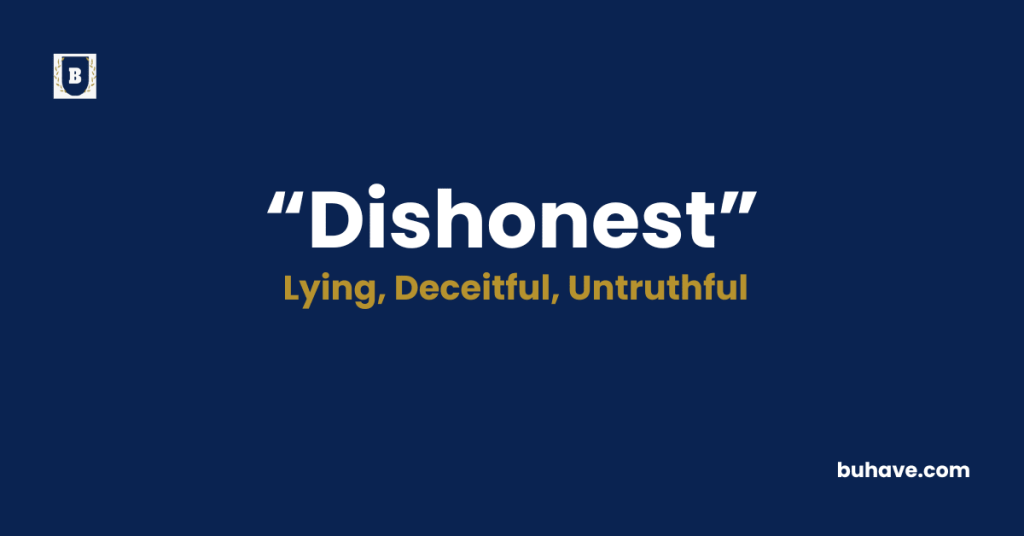The word dishonest (adjective) describes someone who lies, cheats, or behaves in a way that is not truthful or fair. In this guide, you’ll learn the full definition, synonyms, antonyms, etymology, and real-life examples of how to use dishonest correctly in sentences.
Dishonest Explained in Depth
A complete and detailed guide to the word dishonest, including meaning, definition, examples, etymology, synonyms, and antonyms.
Meanings of Dishonest
Dishonest means not being truthful, fair, or trustworthy. It describes behavior that includes lying, cheating, stealing, or misleading others for personal gain or advantage.
Definition
Dishonest refers to a person or action that is deceptive or not truthful. A dishonest individual may lie, steal, or cheat, and cannot be trusted to act with integrity. The word is often used to describe unethical behavior in personal relationships, business dealings, or public office.
Being dishonest typically involves a willful choice to hide the truth or manipulate others for selfish purposes. This term reflects a serious lack of moral character and undermines trust, responsibility, and fairness in any situation where honesty is expected or required.
Etymology
The word dishonest comes from the prefix “dis-” meaning “opposite of” or “lack of,” and the root “honest,” which traces back to the Latin word “honestus,” meaning “honorable” or “respectable.” The term began to appear in Middle English during the 14th century, originally carrying the meaning of “dishonorable” or “indecent.” Over time, its usage evolved more narrowly to refer specifically to a lack of truthfulness, integrity, or moral behavior. Today, dishonest is widely used to describe unethical or deceptive actions and the people who commit them.
Example Sentences
- He was fired for being dishonest about his qualifications.
- It’s dishonest to take credit for someone else’s work.
- The company lost customers due to dishonest marketing tactics.
Dishonest Synonyms
- Untruthful
- Deceptive
- Fraudulent
- Untrustworthy
- Corrupt
- Cheating
- Lying
- Tricky
- Insincere
- Cunning
Dishonest Antonyms
- Honest
- Truthful
- Trustworthy
- Sincere
- Fair
- Ethical
- Transparent
- Reliable
- Upright
- Principled
FAQs about Dishonest
Here are some FAQs (Frequently Asked Questions) about the word “Dishonest”
1. What does dishonest mean?
It means not telling the truth or acting in a way that deceives or misleads others.
2. Can dishonesty be a habit?
Yes, repeated acts of dishonesty can become a pattern of behavior and damage one’s reputation permanently.
3. Is dishonest the same as unethical?
They are related, but dishonest usually refers specifically to lies and deception, while unethical covers a broader range of wrong actions.
4. Can a dishonest act be unintentional?
It is possible, but the word typically implies intentional deception or wrongdoing.
5. Is being dishonest always serious?
Not always, but even small dishonest actions can harm trust and credibility over time.

















